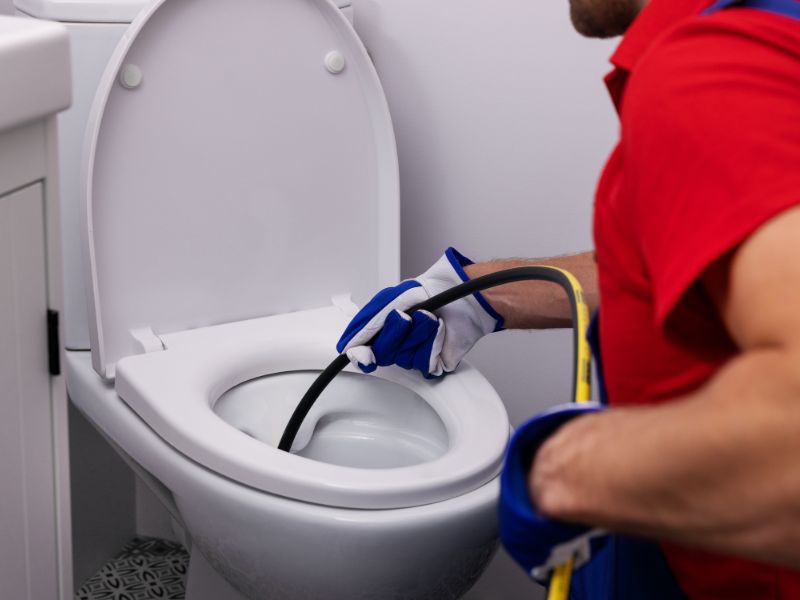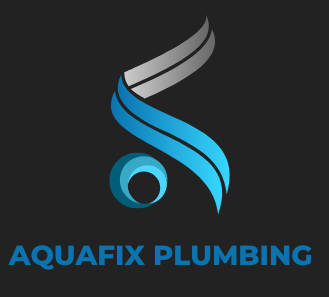Types of Drain Blockages and How to Deal with Them
Understanding the types of blockages you might encounter is crucial for effective solutions, saving you time, money, and inconvenience. This guide explores the common causes of clogged drains in and around Durban, offering insights into prevention and remediation.
The Usual Suspects: Organic Blockages
Organic blockages frequently occur in Durban homes. They involve the accumulation of biodegradable materials that enter drains through everyday activities.
- Hair Accumulation: Hair is a major culprit. It readily clumps together, It forms a tangled mass that traps other debris. Long hair is particularly problematic, but even short hair contributes to blockages over time. Regularly cleaning drain strainers minimizes this issue.
- Soap Scum Buildup: Soap scum, a byproduct of soap reacting with hard water minerals, is another common offender. This sticky residue coats pipe interiors, gradually narrowing the passage. While Durban’s water is treated, it can still contribute to soap scum accumulation. Using liquid soaps instead of bar soaps can help reduce this problem.
- Food Waste Accumulation: Food scraps significantly contribute to kitchen sink blockages. Even small particles accumulate over time, especially when combined with grease and oil. Avoid pouring cooking fats and oils down the drain; they solidify as they cool, creating a sticky mess that traps food particles. Always dispose of food waste in the garbage or compost bin. A sink strainer is invaluable for catching food debris.
- Leaves and Debris Accumulation: Durban’s lush gardens can also be a source of drain problems. Leaves, twigs, and other debris wash into outdoor drains, especially during heavy rains. These materials create significant blockages, particularly in stormwater drains. It’s important to Regularly clearing gutters and downspouts to prevent this issue from happening.
Recognizing the Signs of a Blocked Drain
Early recognition of a blockage can help you address the problem before it escalates. Look for these telltale signs:
- Slow Drainage: Water draining slowly from sinks, showers, or bathtubs is often the first indication.
- Gurgling Sounds: Gurgling sounds from drains indicate trapped air due to a partial blockage.
- Foul Odors: Foul smells emanating from drains can signify decaying organic matter trapped in the pipes.
- Overflowing Drains: In severe cases, drains can overflow, causing water damage.
Beyond the Organic: Inorganic Blockages
Inorganic blockages involve non-biodegradable materials. These blockages can be more challenging to remove, often requiring specialised tools or professional intervention.
- Mineral Buildup (Scaling): Durban’s water, while treated, can still contain minerals that contribute to scale buildup inside pipes. This buildup restricts water flow and eventually leads to complete blockages. Consider installing a water softener to mitigate this issue.
- Foreign Object Obstruction: Small toys, jewelry, and other foreign objects can accidentally fall into drains, causing immediate blockages. This is especially common in households with children. Maintain tidy bathroom and kitchen areas, and be mindful of what you flush down the toilet. Only toilet paper should be flushed.
- Construction Debris Accumulation: During home renovations or construction, materials like cement, grout, and drywall dust can easily enter drains. These materials harden and create stubborn blockages. Always cover drains during construction work to prevent debris from
- Root Intrusion Tree roots seeking water and nutrients can infiltrate drain pipes, causing significant damage and blockages. This is a common problem in Durban due to the abundant vegetation. Regularly inspecting drains for signs of root intrusion is crucial. If you suspect root problems, consult a professional plumber. They have specialised tools and techniques for removing roots without damaging pipes.
DIY Solutions and Professional Intervention
For minor blockages, consider these DIY solutions:
- Plunger Use: A plunger is a simple but effective tool for dislodging minor blockages. Use a flange plunger for toilets and a cup plunger for sinks and showers.
- Baking Soda and Vinegar Solution: Use a mixture of baking soda and vinegar can sometimes dissolve organic matter. Pour baking soda down the drain, followed by vinegar. Let it fizz for about 30 minutes, then flush with hot water.
- Drain Snake Application: A drain snake is a flexible tool used to manually break up or remove blockages.
While DIY methods can be helpful for minor blockages, it’s essential to recognize when professional intervention is necessary. If these methods fail, or if you suspect a more serious issue like tree root intrusion, consult a professional plumber. Attempting to fix complex blockages yourself can worsen the problem and lead to more costly repairs.
Preventing Drain Blockages in Durban
Prevention is paramount. Implement these tips to maintain free-flowing drains:
- Use Drain Strainers: Install strainers in sinks and showers to catch hair, food scraps, and other debris.
- Proper Grease Disposal: Never pour cooking grease or oil down the drain. Let it cool and dispose of it in the garbage.
- Toilet Paper Only: Flush only toilet paper down the toilet. Avoid flushing other items, such as paper towels, sanitary products, or wipes.
- Regular Drain Cleaning: Consider professional drain cleaning annually to remove buildup and prevent blockages.
- Landscape Management: Keep trees and shrubs trimmed away from drain lines to prevent root intrusion.
By understanding common drain blockage types in Durban and implementing preventative measures, you can maintain a healthy plumbing system and avoid the inconvenience of clogged drains. Remember, proactive maintenance is key. If you encounter a persistent blockage, consult a qualified plumber. They possess the expertise and tools to restore optimal drainage.

Frequently asked questions about blockages
1. How much does it cost to unblock a drain in South Africa?
Costs range from R650 to R1,500, depending on the severity, location, and whether specialized equipment is needed.
2. How to unblock a badly blocked drain?
Start with a plunger or drain snake. If that fails, use a drain cleaner or remove the U-bend for manual cleaning. For persistent clogs, it’s best to call a plumber.
3. Who is responsible for blocked drains?
Homeowners are responsible for drains on their property, while municipalities handle blockages in public or shared drainage systems.


Recent Comments